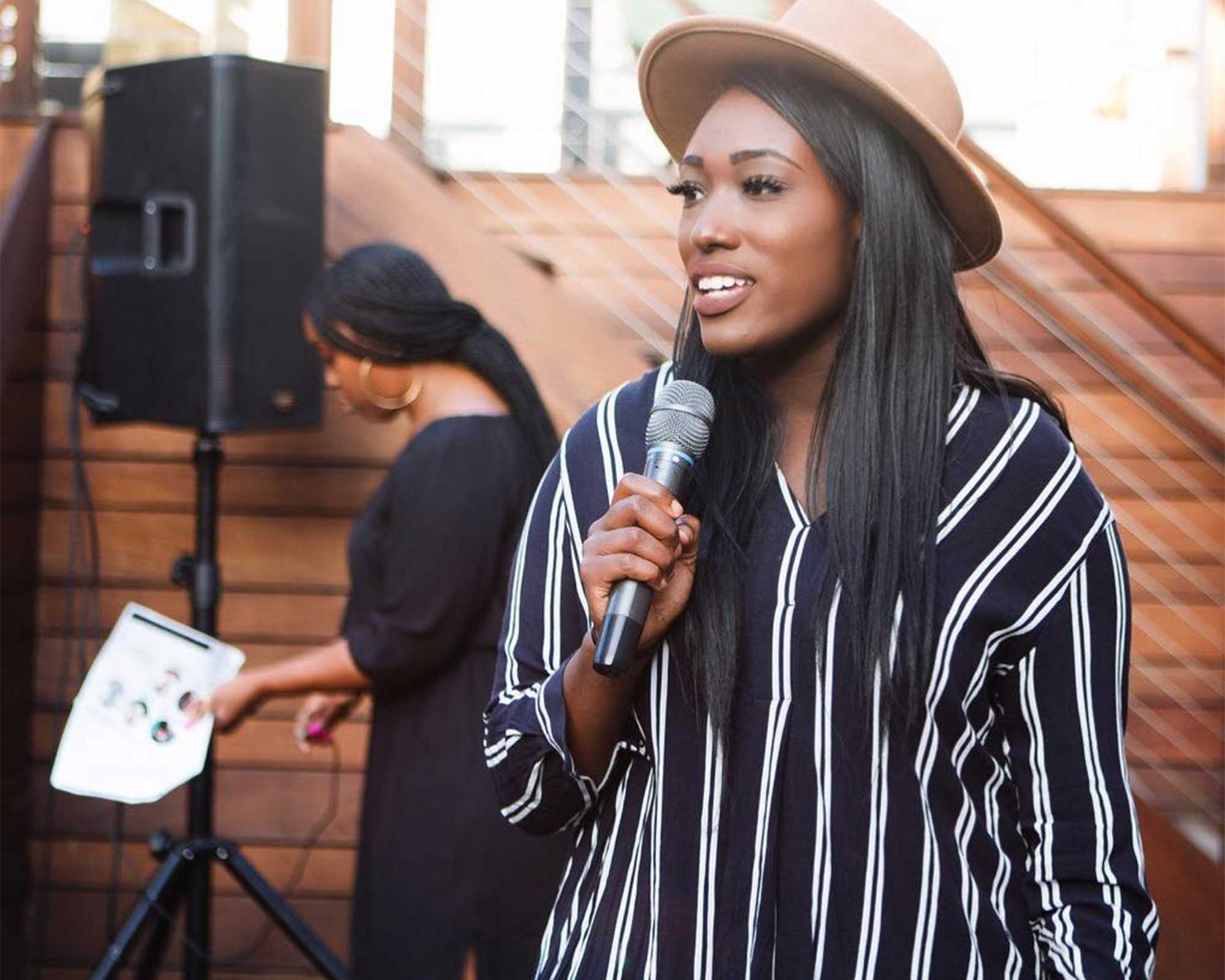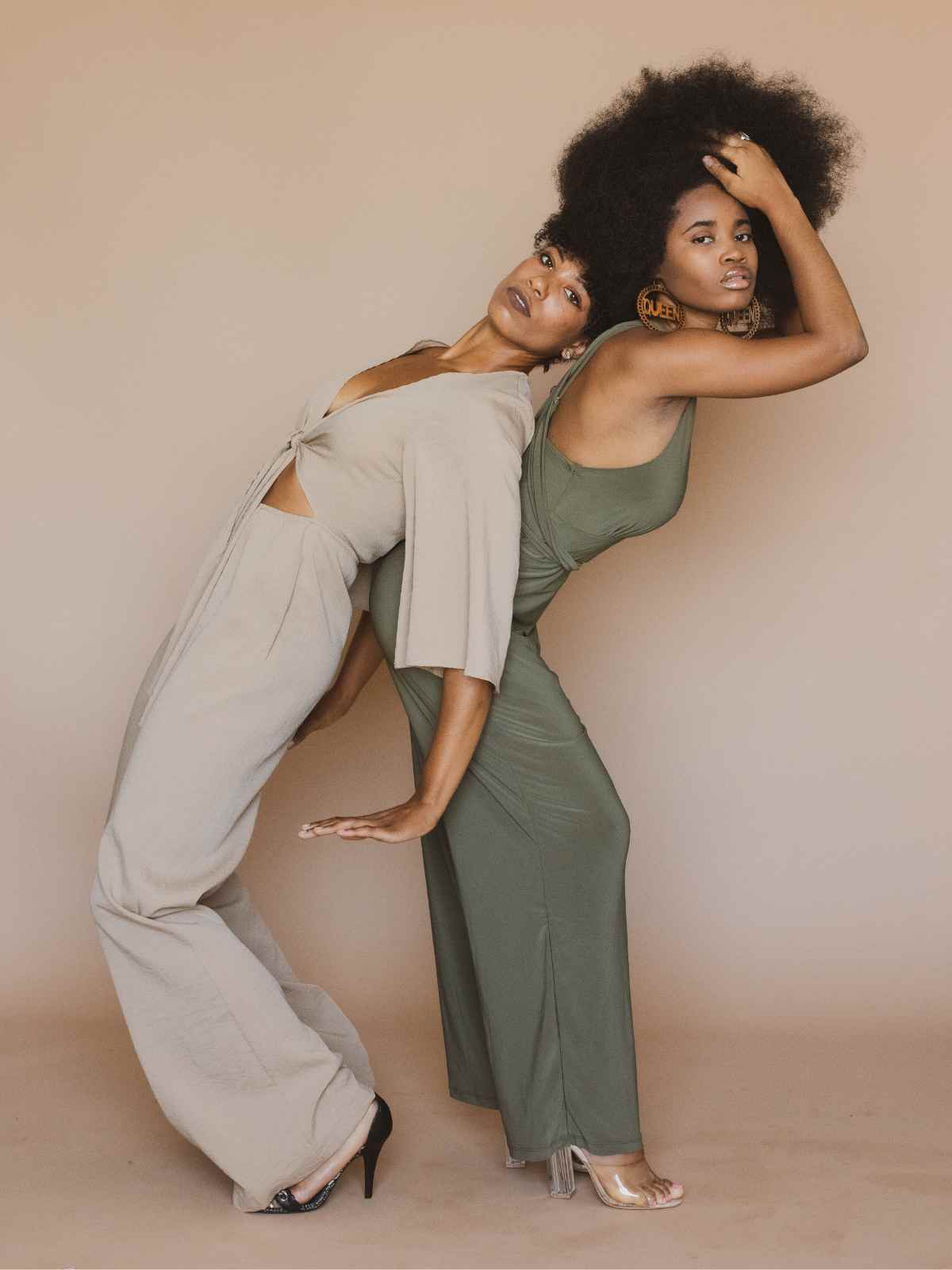If you’re worried about the slow pace of change in fashion, then our latest Q&A is for you. We catch up with the founder of the Sustainable Fashion Forum for her take on the state of fashion and the pep talk we all need.
Meet the Sustainable Fashion Forum’s founder
Sustainable fashion is nothing new. What’s new are the unsustainable practices that define the industry. Fast fashion has only emerged in the past few decades, with the likes of H&M and Zara driving down prices, exploiting workers, and contributing to the climate emergency. Many people now toss out barely-worn garments, and they’re shopping new looks daily on hyper-fast eCommerce platforms like SHEIN and Boohoo.
Brittany Sierra is pushing the industry to rethink that entire business model. The Portland, Oregon-based founder of the Sustainable Fashion Forum (SFF) is one of today’s most compelling disruptors—a marketing executive and entrepreneur from the Pacific Northwest who has quickly risen from relative obscurity to be on the forefront of the industry’s most urgent issues. On Instagram, the SFF community numbers into the hundreds of thousands. And with the annual SFF conference, she holds space for people changing the game—bringing together small- and -medium-sized brands, fashion insiders, and sustainability experts to collectively reimagine the status quo.
This season, Sierra has taken her mission one step further—launching the “Crash Course Fashion Podcast” to dive deep into the behind-the-scenes challenges sustainable businesses face. (One installment features Good On You’s Gordon Renouf.) As the first episodes of the podcast aired, we sat down with Sierra to get her take on the current state of sustainable fashion: how “sustainable” has become a marketing buzzword, how brands are failing to understand shoppers, and a much-needed pep talk for those discouraged by the slow pace of change.
7 Q&As with Brittany Sierra on the state of sustainable fashion
1. Q: You started the Sustainable Fashion Forum in 2017 because of a disconnect you saw in the industry—a disconnect between leading brands and shoppers. Has that motivation changed in the years since?
A: I can’t say that anything has really changed. My motivation is still the same. And honestly, over the years, it’s been reinforced by the feedback from our community.
When I first started it, I wasn’t planning on creating a conference, a podcast, a platform. I thought I was simply merging my passions for business, fashion, and sustainability. But in the past few years, it’s become clear that the space we’ve created has become a crucial voice for both fashion enthusiasts as well as the many brands that we reach.
I started this because I saw a gap in the sustainability space. Even now, there still aren’t that many people asking the difficult questions and also bringing the business perspective on how brands must do better.
Voir cette publication sur Instagram
2. Q: News hook: You’ve just launched a podcast, “Crash Course Fashion,” which goes behind the scenes to show us what it takes to run a sustainable fashion brand. What inspired you to dive deep into the struggles many smaller designers and labels face?
A: My background is in marketing, and that’s where I see sustainable brands struggle the most. They’re so focused on their mission that they often neglect the rest of their business. Launching this podcast felt like a way I could address some of those challenges—and bring in some of the smartest people I know in the industry to support the small businesses in our community and help them succeed.
Unfortunately, a lot of brands don’t get the balance between their mission and their business. It’s delicate. It’s challenging to navigate not wanting to promote overconsumption while being a sustainable brand. But we need these mission-driven businesses to succeed if we want to truly make fashion more sustainable. We need viable alternatives to fast fashion.
Avoiding the tough questions is not going to move the industry forward. We have to discuss these things in order to make true progress.
3. Q: Looking at broad themes in sustainable fashion brands, what do you think brands are failing to understand?
A: My whole life is sustainable fashion. I love it, but I don’t prefer the stereotypical look of sustainable fashion. Many people are creating all these companies that look the same, and the main message is that you should buy from them because they’re sustainable. Well, what’s the logic there?
Even though we want people to buy more sustainably, brands need to understand that there are many reasons why people buy what they buy. It’s style. It’s fit. It’s price. It’s what makes you feel good. For a lot of people, things like sustainable sourcing and using less water are appealing, but they aren’t the number one reasons they shop. There’s a lot of work sustainable brands need to do here to understand consumer psychology.
4. Q: That brings to mind a provocative question that writer Whitney Bauck asked a few years ago: Do we really need any more sustainable fashion brands?
A: We truly don’t need more of the same sustainable fashion brands. What’s happening is that plenty of brands are starting, but they’re not differentiating. They’re not doing it better than what’s already out there. They’re not filling a need.
There are already 50,000 brands that make boxy dresses in linen. [laughs] These brands often have their hearts in the right place. They say they want to change the fashion industry. But they’re not going to save the world by creating more of what we don’t need. It’s just excess at this point. It’s more waste.
If you really want to change the fashion industry, you have to have a good reason for bringing a product into the world. You need to be willing to do what it takes to do it successfully.
All of these brands are making all these grand claims. Blah, blah, blah. And yet, we’re still here.
5. Q: Fashion is already a hard business for small upstarts to enter. “Sustainability” presents another layer of complexity. What are some of the key challenges you’ve noticed that independent labels face?
A: I constantly get DMs on Instagram from smaller brands saying, ‘I don’t have the budget.’ It seems like a chicken-and-egg situation where these businesses know they need marketing and PR in order to grow, but then they don’t have the budget to pay for it.
I get it. The Sustainable Fashion Forum started with a girl who had an interest in sustainability and an Instagram. I never did any ads. I hardly had anything in my bank account. In fact, in the early years, my electricity, my phone, my internet were often turned off because I didn’t have any money. I put everything I had into growing this platform because that’s what I was passionate about. I grew it from nothing to a platform of over 200,000 followers—a platform that now has the attention of these massive brands and the leaders in fashion.
So, it’s a huge misconception that you have to have a ton of money to grow your business. It’s not true. There’s a lot you can do to grow your business with absolutely no money.
Voir cette publication sur Instagram
6. Q: “Sustainable fashion” has, for better or worse, become a buzzword in the past few years. How have the conversations in the SFF community evolved as a result?
A: I started this platform because I wanted to learn, so I didn’t immediately know what questions to ask. In the early days, if I’m being completely transparent, it was surface level. I was trying to appeal to these big brands because I wanted them to participate in the conference. I wanted to have conversations they were comfortable having. I felt like I was watering down what I was doing.
Then at a certain point, I just realized: The big brands aren’t participating, anyway. And no one is sponsoring us for watering down the questions. So why try to keep them comfortable? I launched this platform to ask the questions I was curious about, so I eventually started digging into the questions people still want answers to. People want to know the truth.
Avoiding the tough questions is not going to move the industry forward. We have to discuss these things in order to make true progress. Otherwise, we’re going to keep circling around the same problems. I don’t want to be having these same conversations in 30 years.
Creating change means that we keep going even through the hard parts, even through the parts that are annoying as hell.
7. Q: What advice do you have for people who are pushing for change in fashion and seeing little in the way of progress?
A: I had this moment last year. I was putting together the programming for the conference, and I realized we were literally talking about all the same issues from when we started. All of these brands are making all these grand claims about what they’re doing and how they’re going to change this and that and blah, blah, blah. And yet, we’re still here.
So I would say, whatever you do, don’t stop. Keep going. Even if you’re asking the same questions and getting the same answers. Because here’s the thing: If we all just get frustrated and stop, then there’s really, truly going to be no progress.
Remember that the frustration is part of the drive that motivates you. You have to keep pushing through, because nothing will change if we’re all like, this is hard; if we’re all like, why am I still talking about the same things?
And maybe something that’s frustrating you, well, maybe that’s an area for you to get involved, where you can help to push change forward.
Author bio:
JD Shadel is a London-based journalist, editor, and strategist, whose writing appears in The Washington Post, Condé Nast’s them., VICE, BBC News, Bloomberg, and many other outlets. Their work often centres on issues of justice and the experiences of LGBTQ+ people. In 2017, VICE editors named their reporting on historical queer activism among the “Best Writing of 2017″, and they’ve played leading roles in projects and publications honoured by the U.S. Travel Association and the Webby Awards. At Good On You, JD serves as Head of Content, building on their decade of experience in community-driven digital media and a lifetime of second hand shopping. (Author photo by Celeste Noche.) Find them on Twitter and their website.


















